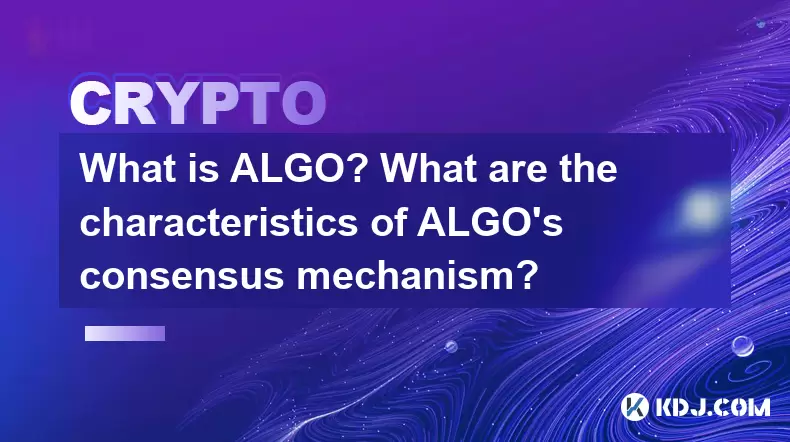-
 Bitcoin
Bitcoin $117700
-1.00% -
 Ethereum
Ethereum $4458
-3.91% -
 XRP
XRP $3.119
0.14% -
 Tether USDt
Tether USDt $1.001
-0.02% -
 BNB
BNB $836.6
-1.56% -
 Solana
Solana $189.5
-3.90% -
 USDC
USDC $0.9998
-0.02% -
 Dogecoin
Dogecoin $0.2335
1.29% -
 Cardano
Cardano $0.9642
1.51% -
 TRON
TRON $0.3539
-1.19% -
 Hyperliquid
Hyperliquid $47.41
-1.84% -
 Chainlink
Chainlink $21.92
-3.28% -
 Stellar
Stellar $0.4286
-0.23% -
 Sui
Sui $3.724
-3.29% -
 Bitcoin Cash
Bitcoin Cash $594.8
-0.78% -
 Ethena USDe
Ethena USDe $1.001
0.04% -
 Hedera
Hedera $0.2501
-2.06% -
 Avalanche
Avalanche $23.96
-4.87% -
 Litecoin
Litecoin $119.0
-2.32% -
 Toncoin
Toncoin $3.473
0.82% -
 UNUS SED LEO
UNUS SED LEO $9.596
0.17% -
 Shiba Inu
Shiba Inu $0.00001301
-0.39% -
 Uniswap
Uniswap $11.03
-0.25% -
 Polkadot
Polkadot $3.935
-2.62% -
 Dai
Dai $1.000
0.01% -
 Bitget Token
Bitget Token $4.564
-1.76% -
 Cronos
Cronos $0.1512
-4.11% -
 Ethena
Ethena $0.7306
-1.09% -
 Pepe
Pepe $0.00001087
-2.68% -
 Aave
Aave $300.2
-4.00%
What is ALGO? What are the characteristics of ALGO's consensus mechanism?
ALGO, Algorand's native crypto, uses Pure Proof-of-Stake for secure, scalable transactions; holders participate in governance and consensus.
May 12, 2025 at 01:15 pm

What is ALGO? What are the characteristics of ALGO's consensus mechanism?
ALGO is the native cryptocurrency of the Algorand blockchain, a decentralized platform designed for the efficient and secure execution of financial transactions and smart contracts. The Algorand network was created by Silvio Micali, a renowned computer scientist and Turing Award winner, with the aim of addressing some of the key challenges faced by earlier blockchain systems, such as scalability, security, and decentralization. ALGO serves multiple purposes within the Algorand ecosystem, including facilitating transactions, participating in the network's governance, and incentivizing users to secure the network.
The Algorand Consensus Mechanism: Pure Proof-of-Stake (PPoS)
At the heart of the Algorand network is its innovative consensus mechanism known as Pure Proof-of-Stake (PPoS). Unlike traditional Proof-of-Stake (PoS) systems, PPoS is designed to be more inclusive and efficient, allowing every ALGO holder to participate in the consensus process without the need for staking pools or delegating their stake. This mechanism aims to achieve high levels of security and decentralization while maintaining the ability to process transactions quickly and at a low cost.
Key Characteristics of PPoS
Randomized Selection: In PPoS, the selection of validators is done through a verifiable random function (VRF). This ensures that the selection process is unbiased and that every ALGO holder has an equal chance of being chosen to propose or vote on a block, regardless of the size of their stake.
High Scalability: The Algorand network can process thousands of transactions per second, thanks to its ability to select a new set of validators for each block. This dynamic selection process allows the network to scale efficiently without compromising on security.
Finality: Once a block is added to the Algorand blockchain, it is considered final. This means that transactions are confirmed almost instantly, providing users with a high level of certainty and eliminating the risk of forks.
Energy Efficiency: PPoS is significantly more energy-efficient than Proof-of-Work (PoW) systems, as it does not require the intensive computational power needed for mining. This makes Algorand a more environmentally friendly option for blockchain operations.
Participation in the Algorand Network
To participate in the Algorand network, users need to hold ALGO in their wallets. The more ALGO a user holds, the higher their chances of being selected as a validator. However, even users with small amounts of ALGO can participate, making the network highly inclusive. Here's how you can get started:
Obtain ALGO: You can purchase ALGO on various cryptocurrency exchanges such as Coinbase, Binance, or Kraken. Once you have ALGO, transfer it to a wallet that supports Algorand, such as the official Algorand Wallet or a compatible hardware wallet like Ledger.
Set Up Your Wallet: If you're using the official Algorand Wallet, download it from the Algorand website and follow the setup instructions. For hardware wallets, ensure that you have the latest firmware and install the Algorand app.
Participate in Consensus: By holding ALGO in your wallet, you are automatically eligible to participate in the consensus process. The wallet software will handle the selection and voting process on your behalf, making it easy for you to contribute to the security and decentralization of the network.
Governance and Voting
In addition to participating in the consensus mechanism, ALGO holders can also engage in the governance of the Algorand network. Algorand employs a decentralized governance model where ALGO holders can vote on proposals that affect the future development and direction of the platform. This includes decisions on protocol upgrades, funding for community projects, and other strategic initiatives.
To participate in governance, ALGO holders need to commit their tokens to a governance period, typically lasting for a few months. During this period, they can vote on proposals using the Algorand Governance Portal. The number of votes a user has is proportional to the amount of ALGO they have committed. After the governance period ends, users can reclaim their ALGO and participate in the next round of governance.
Use Cases and Applications
The Algorand platform supports a wide range of applications, from simple peer-to-peer transactions to complex decentralized finance (DeFi) and non-fungible token (NFT) projects. Some notable use cases include:
Decentralized Exchanges (DEXs): Algorand's high throughput and low transaction fees make it an ideal platform for DEXs, where users can trade cryptocurrencies directly with one another without the need for intermediaries.
Stablecoins: Several stablecoin projects have been built on Algorand, leveraging its fast and secure transaction processing capabilities to provide users with stable digital currencies pegged to fiat currencies like the US dollar.
NFTs: The Algorand blockchain supports the creation and trading of NFTs, allowing artists and creators to tokenize their work and sell it directly to collectors.
Supply Chain Management: Algorand's ability to process transactions quickly and securely makes it suitable for supply chain management applications, where transparency and efficiency are crucial.
Security and Decentralization
The security of the Algorand network is maintained through its PPoS consensus mechanism, which ensures that no single entity can control the network. The random selection of validators and the requirement for a supermajority to approve blocks make it extremely difficult for malicious actors to compromise the network.
Decentralization is another key aspect of Algorand's design. By allowing every ALGO holder to participate in the consensus process, the network remains highly decentralized, reducing the risk of centralization and ensuring that control is distributed among a large number of participants.
Frequently Asked Questions
Q: How does Algorand ensure the security of its network?
A: Algorand ensures the security of its network through its Pure Proof-of-Stake (PPoS) consensus mechanism. The random selection of validators and the requirement for a supermajority to approve blocks make it extremely difficult for malicious actors to compromise the network. Additionally, the inclusion of every ALGO holder in the consensus process helps maintain a high level of decentralization, further enhancing security.
Q: Can I participate in Algorand's governance with a small amount of ALGO?
A: Yes, you can participate in Algorand's governance with any amount of ALGO. The number of votes you have is proportional to the amount of ALGO you commit to the governance period, but even small amounts can contribute to the decision-making process.
Q: What are the benefits of using Algorand for decentralized applications?
A: Algorand offers several benefits for decentralized applications, including high scalability, fast transaction processing, low fees, and strong security. Its ability to handle thousands of transactions per second makes it suitable for applications that require high throughput, such as decentralized exchanges and supply chain management systems.
Q: How does Algorand's consensus mechanism differ from traditional Proof-of-Stake systems?
A: Algorand's Pure Proof-of-Stake (PPoS) differs from traditional Proof-of-Stake (PoS) systems in several ways. PPoS allows every ALGO holder to participate in the consensus process without the need for staking pools or delegating their stake. The selection of validators is done through a verifiable random function (VRF), ensuring an unbiased and inclusive process. Additionally, PPoS achieves finality for each block, providing instant transaction confirmation and eliminating the risk of forks.
Disclaimer:info@kdj.com
The information provided is not trading advice. kdj.com does not assume any responsibility for any investments made based on the information provided in this article. Cryptocurrencies are highly volatile and it is highly recommended that you invest with caution after thorough research!
If you believe that the content used on this website infringes your copyright, please contact us immediately (info@kdj.com) and we will delete it promptly.
- Kazakhstan's Crypto Leap: Bitcoin ETF and Central Asia's Digital Finance Future
- 2025-08-13 12:45:19
- BlockDAG Presale Blazes Past $371M: Fundraising Frenzy Fuels Crypto Sensation
- 2025-08-13 13:05:21
- Meme Coins: Chasing the 2025 Surge – Which Will Moonshot?
- 2025-08-13 10:25:23
- Bitcoin's Wild Ride: Rally, Pullback, and What's Next
- 2025-08-13 10:25:23
- Bitcoin, Bitmax, and Institutional Demand: A New Era of Crypto Investment
- 2025-08-13 10:45:12
- Solana, ROAM, and Airdrops: What's the Buzz in 2025?
- 2025-08-13 11:35:13
Related knowledge

How to purchase Aragon (ANT)?
Aug 09,2025 at 11:56pm
Understanding Aragon (ANT) and Its PurposeAragon (ANT) is a decentralized governance token that powers the Aragon Network, a platform built on the Eth...

Where to trade Band Protocol (BAND)?
Aug 10,2025 at 11:36pm
Understanding the Role of Private Keys in Cryptocurrency WalletsIn the world of cryptocurrency, a private key is one of the most critical components o...

What is the most secure way to buy Ocean Protocol (OCEAN)?
Aug 10,2025 at 01:01pm
Understanding Ocean Protocol (OCEAN) and Its EcosystemOcean Protocol (OCEAN) is a decentralized data exchange platform built on blockchain technology,...

How to invest in Kyber Network Crystal v2 (KNC)?
Aug 12,2025 at 05:21pm
Understanding Kyber Network Crystal v2 (KNC)Kyber Network is a decentralized liquidity hub built on the Ethereum blockchain that enables instant token...

Where can I buy UMA (UMA)?
Aug 07,2025 at 06:42pm
Understanding UMA and Its Role in Decentralized FinanceUMA (Universal Market Access) is an Ethereum-based decentralized finance (DeFi) protocol design...

How to sell my Ren (REN) tokens?
Aug 13,2025 at 11:35am
Understanding REN Tokens and Their Role in Decentralized FinanceREN is an ERC-20 token that powers the Ren protocol, a decentralized interoperability ...

How to purchase Aragon (ANT)?
Aug 09,2025 at 11:56pm
Understanding Aragon (ANT) and Its PurposeAragon (ANT) is a decentralized governance token that powers the Aragon Network, a platform built on the Eth...

Where to trade Band Protocol (BAND)?
Aug 10,2025 at 11:36pm
Understanding the Role of Private Keys in Cryptocurrency WalletsIn the world of cryptocurrency, a private key is one of the most critical components o...

What is the most secure way to buy Ocean Protocol (OCEAN)?
Aug 10,2025 at 01:01pm
Understanding Ocean Protocol (OCEAN) and Its EcosystemOcean Protocol (OCEAN) is a decentralized data exchange platform built on blockchain technology,...

How to invest in Kyber Network Crystal v2 (KNC)?
Aug 12,2025 at 05:21pm
Understanding Kyber Network Crystal v2 (KNC)Kyber Network is a decentralized liquidity hub built on the Ethereum blockchain that enables instant token...

Where can I buy UMA (UMA)?
Aug 07,2025 at 06:42pm
Understanding UMA and Its Role in Decentralized FinanceUMA (Universal Market Access) is an Ethereum-based decentralized finance (DeFi) protocol design...

How to sell my Ren (REN) tokens?
Aug 13,2025 at 11:35am
Understanding REN Tokens and Their Role in Decentralized FinanceREN is an ERC-20 token that powers the Ren protocol, a decentralized interoperability ...
See all articles

























































































